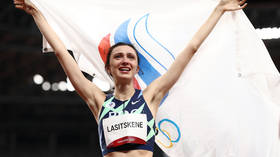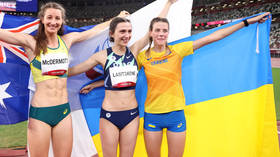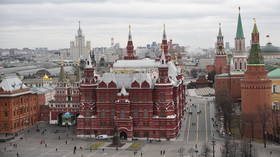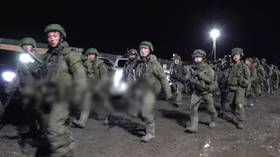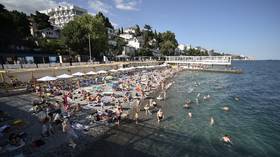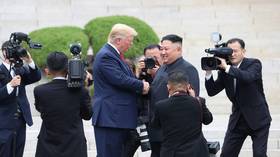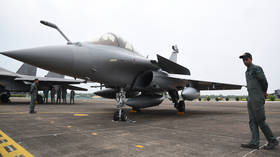Ukraine rival reveals message from Russian Olympic champion
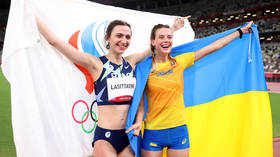
Ukrainian high jumper Yaroslava Mahuchikh has revealed that Russian great of the sport Mariya Lasitskene contacted her after the recent World Athletics Championships.
Mahuchikh had previously been critical of the three-time world champion, whose absence from the competition in Eugene, Oregon, last month due to sanctions placed on Russian athletes in relation to the military operation in Ukraine led to many concluding that Mahuchikh could win gold for the first time.
The Ukrainian could only manage silver, however, following another second-placed finish behind Lasitskene in Doha in 2019, and was this time topped by Australia's Eleanor Patterson.
Over a week since the tournament concluded, though, Mahuchikh said that Lasitskene contacted her to address her concerns about the ongoing conflict between their countries.
"Three months passed and Mariya Lasitskene wrote a letter to [International Olympic Committee president] Thomas Bach, but she wrote only that she was not performing," explained Mahuchikh.
"She didn't write anything to me. [But] already after the World Championships in Eugene, she wrote to me. But, you know, this is after so many of my interviews," Mahuchikh noted.
"I tell everyone about Ukraine, about the relations, and here she wrote to me. She wrote that of course she is very worried about us and about this situation.
"But, you know, it didn't get any easier. Five months [of the conflict] have already passed. What kind of conversation can there be?" she asked.
Mahuchikh's fresh comments come after she had previously been critical of Lasitskene, whom she once said she had admired.
The Russian Olympic champion, 29, had penned an open letter to IOC president Bach back in June, accusing him violating the IOC Charter by persisting with a ban on Russian athletes and not having the "courage" to lift it.
Lasitskene argued that keeping Russians away from sports did not stop the conflict, "but on the contrary, it gave birth to a new one, around and inside the sports, which is impossible to contain".
It was the IOC that recommended sporting federations should sanction Russian teams, clubs and athletes in response to the military operation, and many federations such as World Athletics have heeded the call which meant Lasitskene wasn't able to defend her world title in Eugene.
"Before February 24 we had a good relationship, we talked," Mahuchikh explained just over a fortnight ago, in reference to the date that Russia took action against Ukraine.
"But this day changed everything because [Lasitskene] didn't write anything to our athletes.
"But then she wrote to [IOC president] Thomas Bach so she could compete because you're Russian...
"I don't want to see on the track killers because it's really killed a lot of sportsmen this [conflict]," Mahuchikh insisted.
Once naming Lasitskene as her sporting hero as a 16-year-old, Mahuchikh also told NRK "I no longer have an idol" in reference to the Tokyo 2020 gold medalist.
After the Mahuchikh and Lasitskene were photographed celebrating together at the Tokyo Olympics, Ukrainian Deputy Defense Minister Anna Malyar vowed to speak to Mahuchikh while claiming that her behavior could become "the object of the enemy’s information special operations".
Officials from Ukraine's Sports Ministry then reportedly advised their athletes to avoid speaking Russian during interviews and not be photographed with Russian athletes at the Winter Olympics in Beijing earlier this year.
